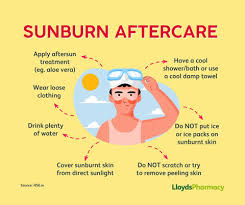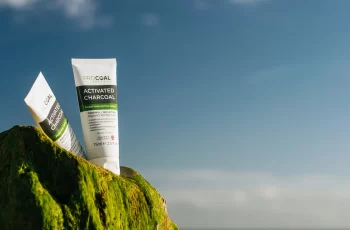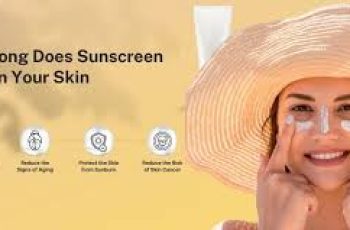
Can You Use Azelaic Acid for A Sunburn?
Azelaic acid has a reputation for treating acne and rosacea without any unwanted side effects. Favoured by many for working on the skin and providing exfoliation in a similar way to other acids, the main difference being the fact that azelaic acid is known for its stability in formulas and how gentle it is on the skin compared to other popular acids, such as glycolic acid.
Today we plan to explore into how the acid works on the skin and answer the question of whether you can use azelaic acid on sunburn. I’ll quickly explain the benefits of the acid for those of you who haven’t been paying attention at the back.
What is azelaic acid and what does it do for the skin?
Derived from grains, such as barley, wheat, and rye
Contains antimicrobial and anti-inflammatory properties
Can help those suffering with acne and rosacea by clearing the pores, ridding them of bacteria preventing any further breakouts from developing, whilst calming inflammations
Comes in a variety of percentages, available in over-the-counter formulas and prescription topical treatments that can contain up to 15 percent
Combats signs of hyperpigmentation and dark spots ensuring the skin can heal quickly
Improves the skin’s texture making it smoother and leaves the complexion glowing
If you wanted to learn more about the benefits of azelaic acid, there is a full dedicated blog post on The Beauty Insiders.
Is azelaic acid sun sensitive?
No, azelaic acid is not sun sensitive which is an unusual trait to have for a chemical exfoliating acid. However, this does not mean you can start skipping your SPF application as if the skin is left unprotected to sun exposure, the newly exfoliated skin cells will become damaged which can then lead to all manner of skin concerns. By this I mean the lipid barrier that sits on the surface of the skin will be compromised and weakened. This is because it will become stripped of the vital water and oil it needs to protect the skin from free radical damage, such as UV rays, pollution, central heating, and other environmental aggressors.
When the skin surface is damaged you will find signs of premature ageing, such as fine lines and wrinkles become more visible, as well as dark spots and areas of pigmentation worsening. Therefore, it’s important to apply nourishing and hydrating ingredients as well as daily SPF to keep the protective skin barrier strong and functioning properly.
What acid is good for sunburn?
Acids that perform exfoliation should be completely avoided on sunburn, exfoliating burnt skin will result in severe irritation and dryness. There is one acid that can be used and is known for being delivering impressive results for sunburn and that is hyaluronic acid. Don’t let the name fool you, it works very differently to other acids. Instead of sloughing away the layer of dead skin cells, instead hyaluronic acid works as a humectant. By this I mean it can draw water into the skin and locking it into place keeping the skin plumped and hydrated all day long. This will work wonders on skin that has caught too much sun, especially if you pop your hyaluronic acid product into the fridge.
What should you not put on sunburn?
There are a few things you should avoid when you have sunburn, here are some examples of what to do to help calm and heal the skin.
Avoid wearing tight clothing
When the skin is burnt, it will respond to the trauma by increasing blood flow to the area. The skin needs loose fitting clothes to prevent the skin suffer from redness, swelling, and increased risk of developing blisters.
Avoid using petroleum jelly
Wait until the sunburn has improved before applying petroleum jelly as this product makes it impossible for heat to escape. Instead opt for after sun formulas enriched in aloe vera and other hydrating, breathable ingredients.
Do not exfoliate
Whilst the skin is healing avoid using any form of exfoliation, such as glycolic acid, salicylic acid, retinol, and physical face scrubs. Once the skin is healed and no longer experiencing sunburn you can reintroduce your skincare favourites back into your routine.
Do not peel or scratch your sunburn
As tempting as it may be to scratch and peel your flaking skin, it is best to apply liberal amounts of hydrating products instead. This will keep the skin supple, hydrated, and avoid any potential irritation and further discomfort.
Remember to stay hydrated
Up the ante with your water intake to keep the skin hydrated and able to heal quickly.
There you have some examples of what not to use on sunburn. Remember to keep sunburn out of the sun and regularly apply sunscreen of at least 30.
Is it bad to put salicylic acid on sunburn?
Yes, it is advised to not use salicylic acid on sunburn. This is because the skin, which is already experiencing increased sensitivity will become stripped of the water and oil needed in the skin barrier.
You will also find that the sebum production begins to overproduce the oil in the skin which will then lead to a flare up in acne and other breakouts. As I have already mentioned, you should avoid using exfoliating acids on the sunburn, instead focus on healing the skin and once it is back to its best condition you can then start using your normal skincare routine.
Does azelaic acid reduce redness?
Yes, one of the main benefits of azelaic acid is its ability to reduce and calm redness. Therefore, many with sensitive skin types who are prone to redness and other skin conditions such as rosacea. The anti-inflammatory properties in azelaic acid can calm the flare-ups and reduce swelling. As effective as azelaic acid to use on redness doesn’t lead to the same effective results on sunburn due to the skin being damaged from overexposure to UV rays which can worsen and reach deeper into skin if used with exfoliating ingredients.
There you have a little more about using azelaic acid on sunburn, don’t forget if you have any further questions, you can find us on Instagram.


